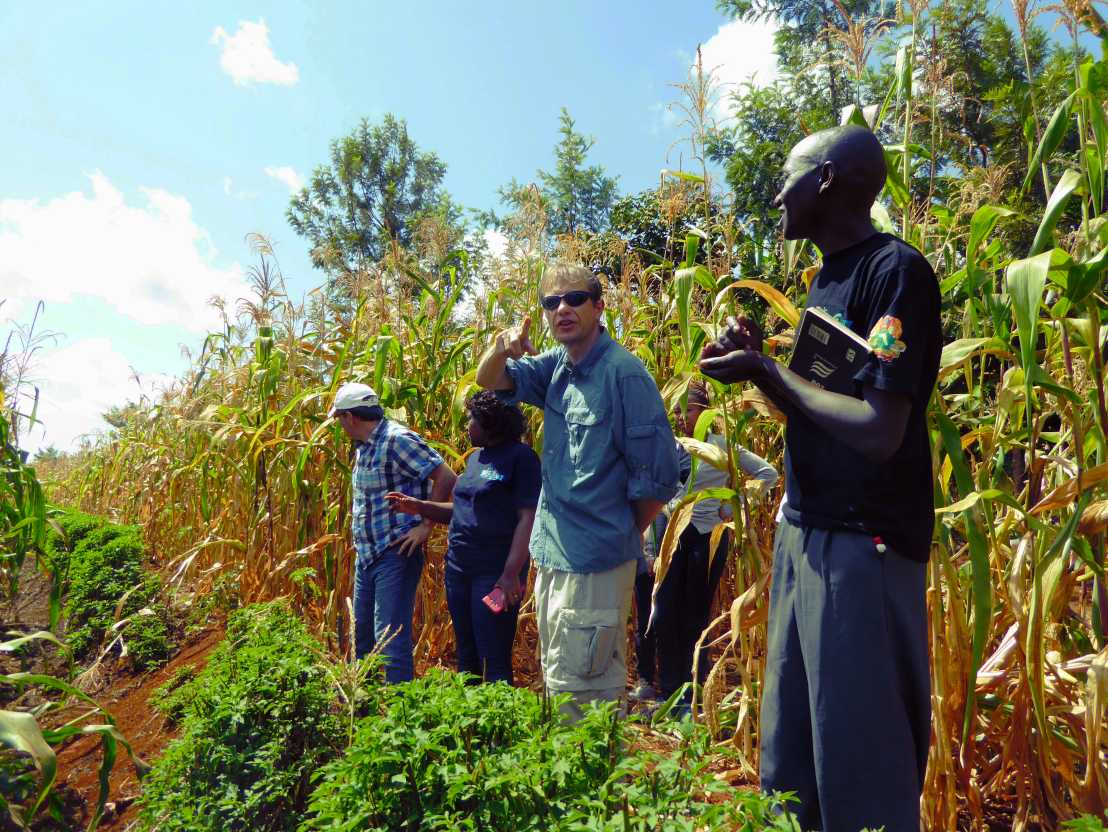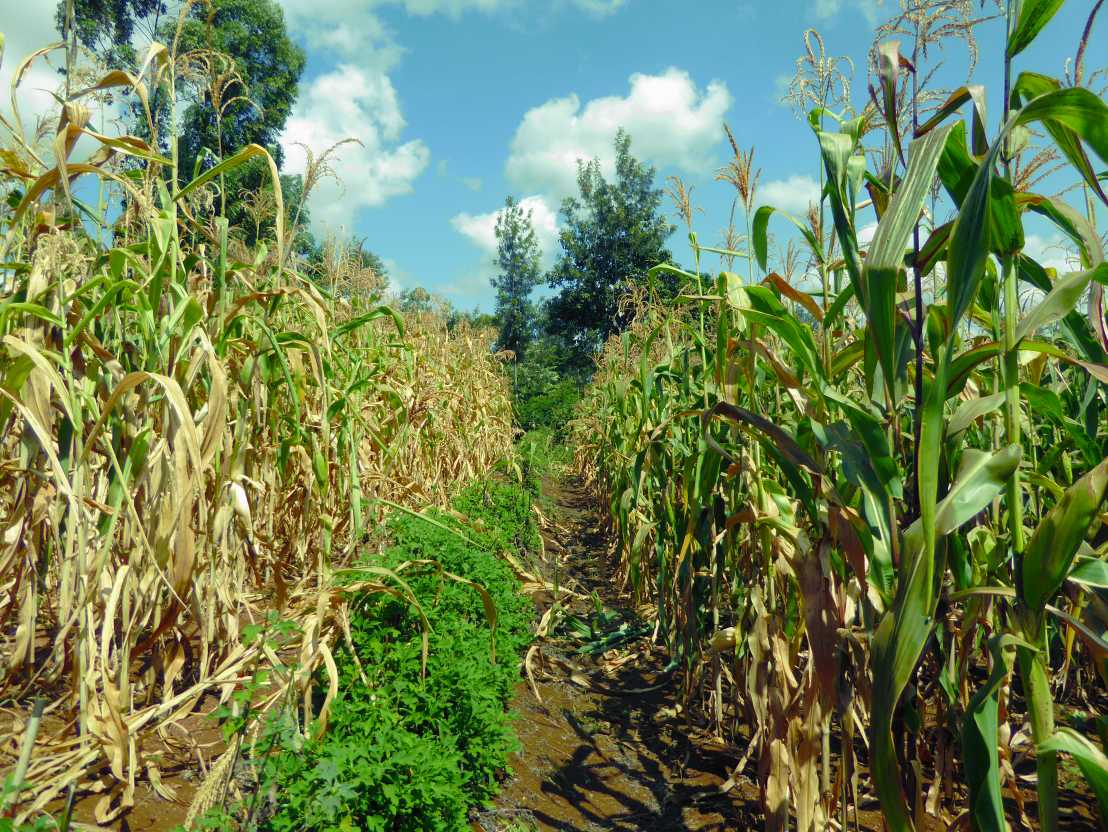Soil Fertility Mgmt for climate smart Intensification
Background

The smallholder rain-fed maize production in Sub-Saharan Africa region is much lower than could be obtained due to soil degradation, declining soil fertility, limited use of inorganic fertilizer, climatic variability and change. Integrated soil fertility management (ISFM) practices have been proposed to increase maize yield and soil organic matter (SOM) compared to conventional management practices. However, the biophysical potential of a wide-scale and long-term adoption of ISFM by Kenya’s smallholder farmers across all possible combinations of soils and microclimates representative of Kenya’s crop growing environment has not been evaluated. Moreover, the effects of ISFM practices on yield and its stability under future climatic conditions and thus their future potential as climate-smart agriculture are still uncertain.
Objectives
This modeling project aims to assess maize intensification through ISFM practices in Kenya. Through spatial process-based modeling with DAYCENT we propose to
- Assess the biophysical potential of ISFM as a climate-smart agricultural option to enhance maize yield, increase soil C, N and P and reduce soil GHG emissions in comparison with conventional soil management practices at the decadal and regional scales
- Elucidate complex interactive effects between quality and quantity of organic resources, quantity of inorganic fertilizer, and key biophysical drivers
- Assess localized climate change adaptation potentials of ISFM practices compared to conventional management practices under future climate scenarios.
Outcomes

This study will be the first regional assessment of the effects of ISFM practices on maize yield and SOM in Kenya. The project will advance our fundamental knowledge about agroecosystem functioning under ISFM practices and particularly the potential of ISFM to mitigate and adapt to climate change from the local to national scales. Furthermore, the project will allow developing ISFM guidelines for smallholder farmers based on local biophysical conditions.
Country: Kenya
System: Maize cropping systems
Project duration: 2017-2021
Project partner: IITA - International Institute of Tropical Agriculture (Kenya); Monicah Mucheru-Muna; Daniel Mugendi; Embu University College, Kenya; Markus Walsh, World agroforestry Center (ICRAF), Arusha, Tanzania; Johan Leenaars, Wageningen University, the Netherlands
Project funding: SNFS – Swiss National Science Foundation
For further information please contact Johan Six (). external pageLink to the project on research gatecall_made.

